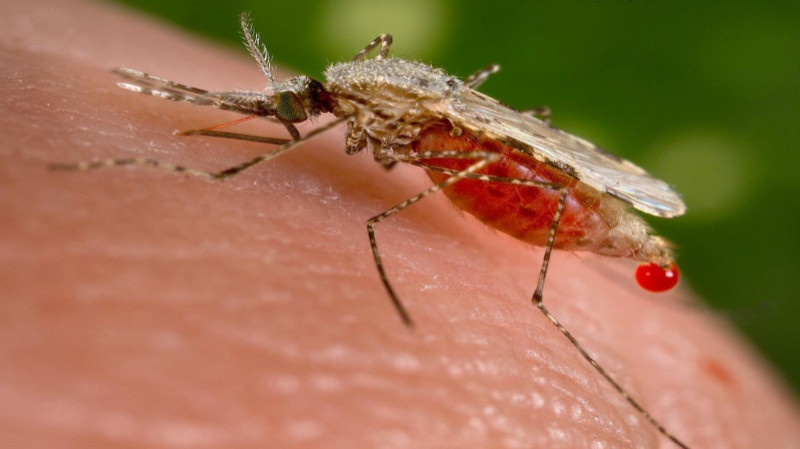Malaria, a disease that has haunted humanity for centuries, is being tackled head-on by India with remarkable success. The latest World Malaria Report from the World Health Organization (WHO) reveals a story of hope, resilience, and progress. While malaria continues to claim lives worldwide, India’s achievements stand as a testament to focused strategies and unwavering commitment.
Malaria is caused by Plasmodium parasites and is transmitted through the bites of infected female Anopheles mosquitoes. Despite being preventable and curable, the disease remains a significant health burden in many parts of the world. Globally, an estimated 263 million cases of malaria and 597,000 deaths were reported in 2023 alone. These staggering numbers highlight the need for continued efforts, especially in regions like Africa and South-East Asia.
India has emerged as a global leader in malaria control, achieving a 69% reduction in estimated cases, from 6.4 million in 2017 to just 2 million in 2023. Similarly, malaria-related deaths dropped by 68%, from 11,100 in 2017 to 3,500 in 2023. These numbers showcase India’s significant contribution to reducing the global malaria burden.
The WHO recognized India’s efforts by announcing its official exit from the High Burden to High Impact (HBHI) group in 2024. This milestone reflects the success of targeted malaria interventions and strategic policy implementation.
Launched in 2019, the HBHI initiative was implemented in four high-burden states: Chhattisgarh, Jharkhand, Madhya Pradesh, and West Bengal. The program focused on:
1. Enhanced Surveillance: Improved tracking of malaria cases to identify hotspots.
2. Targeted Interventions: Distribution of insecticide-treated bed nets (ITNs) and indoor residual spraying (IRS).
3. Community Engagement: Mobilizing local communities for awareness and prevention.
4. Collaborative Action: Partnerships with private and public healthcare providers.
These measures led to a dramatic reduction in malaria incidence and deaths, proving that a focused approach can yield transformative results.
In 2023, India accounted for nearly half of all estimated malaria cases in the WHO South-East Asia Region. This region, comprising eight malaria-endemic countries, reported 4 million cases, contributing 1.5% of the global malaria burden. However, the region has also seen significant progress, with countries like Sri Lanka achieving malaria-free certification in 2016 and Bhutan reporting zero malaria deaths since 2013.
India’s success is particularly striking when viewed in a historical context. Between 2000 and 2023, malaria cases in India decreased by 82.4%, from 22.8 million to 2 million. The incidence rate also plummeted by 93%, from 20 to 1.5 per 1,000 population at risk.
The WHO attributes India’s achievements to the highest-ever commitment and sustained efforts at every level of governance. From national programs to local initiatives, the fight against malaria has been a collective endeavour. Health workers, policymakers, and community leaders have worked tirelessly to implement effective strategies.
India’s malaria control efforts have been powered by several key initiatives:
1. Free Diagnosis and Treatment: Ensuring access to diagnostic tools and life-saving medicines for all, especially in rural and underserved areas.
2. Use of Technology: Expanding molecular diagnostic laboratories and leveraging digital tools for better surveillance and data management.
3. Focus on Vulnerable Populations: Special campaigns targeting high-risk groups, such as tribal communities and urban slum dwellers.
4. Nutritional Support: Programs like the Nikshay Poshan Yojana provide nutritional aid to patients, addressing a critical factor in recovery and prevention.
India’s progress is part of a larger regional effort to combat malaria. Bhutan and Timor-Leste have reported zero malaria deaths since 2013 and 2015, respectively. Sri Lanka’s certification as malaria-free in 2016 offers valuable insights into sustainable elimination strategies. These success stories highlight the importance of regional collaboration and shared learning.
While India’s achievements are commendable, malaria remains a global health challenge. The WHO reports that an estimated 2.2 billion cases and 12.7 million deaths have been averted since 2000, thanks to intensified control measures. However, the fight is far from over. In 2023, malaria cases increased by 11 million compared to 2022, highlighting the need for continued vigilance.
Dr. Tedros Adhanom Ghebreyesus, WHO Director-General, emphasized the importance of stepped-up investments and expanded lifesaving tools to curb the threat of malaria, particularly in high-burden countries.
India’s journey towards malaria elimination is a work in progress. To sustain and accelerate the gains made, the following steps are critical:
1. Strengthening Surveillance: Continuous monitoring of malaria hotspots and rapid response to outbreaks.
2. Expanding Access: Reaching underserved communities with preventive and curative services.
3. Investing in Research: Developing new tools, such as vaccines and innovative diagnostic methods.
4. Addressing Resistance: Combating drug and insecticide resistance through updated treatment protocols.
5. Promoting Awareness: Educating communities about prevention methods and the importance of seeking timely treatment.
India’s achievements in reducing malaria cases and deaths are a ray of hope in the global fight against this deadly disease. The nation’s exit from the HBHI group is a testament to the power of targeted interventions, community engagement, and political commitment.
However, the journey is far from over. As India marches towards its goal of malaria elimination, the focus must remain on sustaining progress and addressing emerging challenges. With continued efforts, India can serve as a model for other countries striving to combat malaria and ensure a healthier future for all.
India’s fight against malaria is not just a national success story; it is a global inspiration. Let us hope that this momentum leads to a day when malaria is eradicated, not just in India, but across the world

 As India marches towards its goal of malaria elimination, the focus must remain on sustaining progress and addressing emerging challenges.
As India marches towards its goal of malaria elimination, the focus must remain on sustaining progress and addressing emerging challenges.










.jpeg)


.jpeg)
.jpeg)
.jpeg)
_(1).jpeg)

_(1)_(1)_(1).jpeg)
.jpeg)
.jpeg)
.jpeg)








.jpeg)
.jpeg)